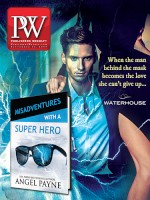I recently attended a reading by a well-known author whose most celebrated book features a child narrator. During the q&a, a woman asked if, when he was writing, he conceived of it as a book for young people or adults. Who did he believe was his audience?
I don’t think about audience at all,” the author said. “I actually think it’s condescending. Who am I to assume I know what they want?”
I saw his point, but I was irked by the comment. It felt as though he was implying that writers are entitled to audiences and don’t have to earn them. Maybe he was right, and the artist’s only obligation is to her or his own vision. Still, if that were the only motivation, why publish at all? Inherent in putting your work into the hands of the public is a desire for a readership. What, I wonder, do we owe that readership?
In Victorian Britain, serial publication made literature accessible for those who couldn’t afford to buy a novel but could spare a shilling for a part issue. The vast increase in audience, however, came at a cost: audiences had opinions. When Arthur Conan Doyle killed Sherlock Holmes in 1893’s The Final Problem, more than 20,000 readers cancelled their subscriptions for the magazine in which the story appeared. Conan Doyle was relieved to be done with Holmes, but, after eight years of outraged fan letters, he reluctantly resurrected him.
Today, the relationship between art and audience is most explicit in television, the modern serialized entertainment. The Veronica Mars movie was financed almost entirely by fans, and Netflix revived Arrested Development and Gilmore Girls due to audience demand. My search for a literary equivalent led me to platforms like Wattpad. There, writers upload their work chapter by chapter to inspire ongoing reader engagement, which takes the form of votes and comments.
For many authors—admittedly, myself included—Wattpad represents one end of the spectrum, extreme in its porousness and crowd-sourced input on the creative process. Those of us who publish traditionally often keep our projects close to the chest, editing them for years in private. As a result, I was hungry for feedback when my first book, The Anatomy of Dreams, was published.
When fellow novelists told me they didn’t read any reviews at all, I was astonished by their self-control. Weren’t they curious? Didn’t they long for affirmation? My desire for feedback is, in part, a deeper and more embarrassing desire: as our world becomes increasingly unstable, the role of art debatable, I want to be told I’ve written a book worth writing. There is ego to that, no doubt. My reaction to the well-known author arose in part from my self-consciousness about those qualities, and my envy that he didn’t need such public approval.
But isn’t there strength in being able to hear criticism and insecurity in categorically refusing it? Sure, a writer who chooses not to read reviews receives feedback from his or her agent and editor and perhaps a circle of trusted readers, but we choose our trusted readers. We can’t choose our reviewers, whether they work for the Wall Street Journal or post on Goodreads. In listening to them, we open ourselves up to a diversity of background and opinion that is simply not present in the closed loop of self-selected contacts. For me, the reviews that hurt most were those that resonated, either because they confirmed something I feared was true about the book or because they made a point I had never considered before.
A lack of openness to feedback implies that a writer believes he or she already contains all of the resources needed to write a particular book. But it’s impossible to write in a vacuum. To the debate about whether to write what we know, I would add that what one already knows is rarely enough to create compassionate, big-hearted art. That requires imagining what we don’t know, and imagining what we don’t know need not only take place in the mind. It can—and, I would argue, it should—be active, an invitation not just to daydream but to ask, research, learn. Reading reviews is an acknowledgment that a creator doesn’t have all of the answers in advance—that he or she is committed to continued learning.
Which brings me back to the question of the well-known author. Who are we writers to assume we know what readers want? To my mind, no assumptions are necessary. Readers are already telling us; we have only to listen.
Chloe Benjamin’s second novel, The Immortalists, will be published by Putnam in January 2018.



 Volume 264
Issue 37
09/11/2017
Volume 264
Issue 37
09/11/2017





